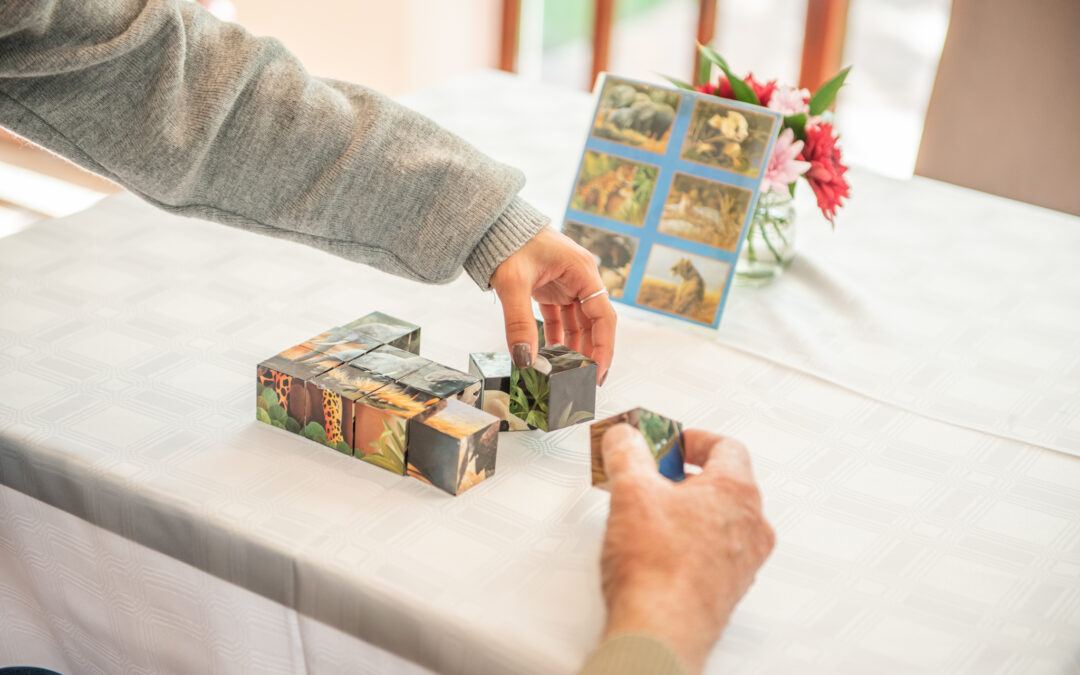Occupational therapy (OT) is a health profession that focuses on helping individuals of all ages participate in everyday activities, or “occupations,” that are meaningful and purposeful to them. The primary goal of occupational therapy is to enable people to lead fulfilling and independent lives, regardless of any physical, cognitive, or emotional challenges they may face. Dementia is a complex journey that not only affects cognitive functions but also gradually reshapes the daily lives of those living with the condition. In the realm of dementia care, occupational therapy emerges as a beacon of hope, offering a holistic approach that goes beyond traditional medical interventions.
Incorporating occupational therapy into specialised dementia care aims to empower individuals with dementia to maintain a sense of independence and purpose in their daily lives. Therapists work closely with patients to identify their strengths and tailor activities that align with their abilities. By fostering independence in tasks such as dressing, grooming, and meal preparation, occupational therapy contributes to a higher quality of life for individuals living with dementia. Engaging in purposeful and meaningful activities has been shown to stimulate cognitive function in individuals with dementia. Occupational therapists design activities that challenge the mind promote memory recall and improve problem-solving skills. These activities act as cognitive exercises, slowing down the progression of cognitive decline and enhancing mental acuity.
Occupational therapy recognises the importance of addressing emotional well-being in dementia care. Meaningful activities tailored to individual interests and past experiences can evoke positive emotions and memories. By focusing on the emotional aspect of care, occupational therapy contributes to reducing feelings of frustration, anxiety, and isolation commonly experienced by individuals with dementia.
Occupational therapists collaborate with families and caregivers to create an environment that supports the unique needs of individuals with dementia. This may involve modifying the living space, introducing memory aids, or implementing routines that provide a sense of structure and familiarity. A supportive environment contributes significantly to the overall well-being of individuals with dementia. Social isolation is a common challenge in dementia care, impacting both individuals and their families. Occupational therapy emphasises social engagement through group activities and community involvement. These interactions provide stimulation and create a sense of belonging, reducing feelings of loneliness and promoting a supportive network.
As we navigate the evolving landscape of dementia care, occupational therapy stands as a testament to the transformative power of tailored, person-centred interventions, offering not just treatment but a pathway to dignity, purpose, and hope. As a specialised dementia care estate, we prioritise and facilitate access to occupational therapy (OT) for our residents due to its unique and comprehensive benefits in dementia care. Occupational therapy plays a pivotal role in enhancing the quality of life for individuals with dementia by addressing the specific challenges they face in daily activities. OT interventions can focus on preserving and improving cognitive functions, promoting independence in self-care activities, and creating a supportive environment tailored to individual needs.
By incorporating OT into our care model (available at our Bryanston Estate), we empower residents to engage in meaningful and purposeful activities, fostering a sense of accomplishment and maintaining a connection to their personal identity. The collaborative nature of OT also ensures that the care provided is person-centred, acknowledging each resident’s individual strengths and goals. Ultimately, by integrating occupational therapy, a specialised dementia care estate can contribute to the overall well-being of its residents, providing a holistic and compassionate approach to dementia care.
